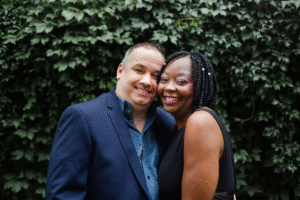
9 Qualities of a Good Marriage | Helping Relationships Grow
9 Qualities of a Good Marriage
Helping Married Couples Strengthen Their Connection
9 Qualities of a Good Marriage
How to Make Your Marriage Last
9 Qualities of a Good Marriage
Have you ever found yourself wondering what makes some relationships absolutely thrive while others just seem to get by? Furthermore, if you’re like most people, you’ve probably noticed that every partnership faces its own unique challenges. However, the marriages that truly flourish tend to share certain fundamental qualities that create lasting bonds and genuine satisfaction.
Strong marriages don’t just happen overnight. Instead, they’re carefully built on intentional choices, shared values, and consistent effort from both partners. Whether you’re newlyweds or you’ve been together for decades, understanding these essential qualities can transform your relationship. Moreover, they’ll help you navigate life’s inevitable ups and downs with greater connection and resilience.
The following nine qualities represent the foundation of marriages that don’t just survive—they genuinely thrive. Additionally, each quality builds upon the others, creating a partnership where both individuals can grow while strengthening their bond together.
Effective Communication: The Heart of Connection
Communication forms the backbone of every successful marriage. However, it’s not just about talking more—it’s about creating a safe space where both partners can express their needs, fears, and dreams without judgment.
Active listening plays a crucial role here. When your partner speaks, do you truly hear them? Or are you already formulating your response? Thriving couples practice reflective listening, where they acknowledge what they’ve heard before responding. For instance, simple phrases like “What I’m hearing is…” or “It sounds like you’re feeling…” can transform difficult conversations.
Additionally, timing matters just as much as the words you choose. Approaching sensitive topics when both partners are calm and present creates better outcomes than trying to resolve issues during stressful moments. Therefore, setting aside dedicated time for meaningful conversations—without distractions like phones or television—shows mutual respect and prioritizes your connection.
Mutual Respect: Honoring Each Other’s Individuality
Respect manifests in countless small moments throughout your marriage. Furthermore, it’s choosing to speak kindly even when you disagree. It’s also honoring your partner’s boundaries and appreciating their perspective, even when it differs from yours.
Mutual respect means recognizing that your partner is a complete individual with their own thoughts, feelings, and experiences. You don’t have to agree on everything, but you can still value their right to hold different opinions. Consequently, this includes respecting their need for personal space, their relationships with friends and family, and their individual goals and aspirations.
When respect is present, criticism transforms into constructive feedback. Moreover, differences become opportunities for growth rather than sources of conflict.
Trust and Honesty: Building Your Foundation
Trust serves as the foundation upon which all other qualities are built. Without it, even the most well-intentioned efforts can crumble. Trust develops through consistent actions over time—keeping promises, being reliable, and maintaining transparency about your thoughts and feelings.
Honesty doesn’t mean sharing every fleeting thought or emotion. Rather, it means being truthful about the things that matter to your relationship. This includes being honest about your needs, your struggles, and your mistakes. Furthermore, when trust is broken, rebuilding it requires patience, accountability, and consistent behavior that demonstrates change.
Small acts of trustworthiness matter just as much as big ones. Therefore, following through on commitments to pick up groceries or call when you’ll be late home all contribute to the overall trust in your relationship.
Shared Values: Moving in the Same Direction
While opposites may attract, couples who thrive typically align on their core values and life goals. This doesn’t mean you need to be identical—instead, it means you share fundamental beliefs about what matters most in life.
These shared values might include your approach to family, money, career priorities, or spiritual beliefs. Additionally, when major decisions arise, having aligned values provides a framework for making choices together rather than pulling in different directions.
Take time to discuss your dreams and goals openly. Where do you see yourselves in five or ten years? What kind of legacy do you want to build together? Regular conversations about your shared vision help ensure you’re moving in the same direction.
Emotional Support: Being Each Other’s Safe Harbor
Life inevitably brings challenges—job stress, family difficulties, health concerns, or unexpected setbacks. During these times, your marriage can either become a source of strength or an additional burden.
Thriving couples offer each other consistent emotional support. This means being present during difficult moments, offering encouragement without trying to “fix” everything, and celebrating each other’s successes without jealousy or competition.
Emotional support also involves creating space for vulnerability. Can you share your fears and insecurities with your partner without worrying about judgment? Do you feel comfortable asking for help when you need it? Building this emotional safety net strengthens your bond and helps you weather any storm together.
Intimacy and Affection: Nurturing Your Connection
Intimacy encompasses much more than physical connection, though that remains important. Furthermore, emotional intimacy—feeling truly known and accepted by your partner—creates the deeper connection that sustains long-term relationships.
Physical affection, from holding hands to intimate moments, helps maintain your romantic connection amid busy schedules and daily responsibilities. Additionally, small gestures like hugs, kisses goodbye, or cuddling while watching television all contribute to your physical bond.
Make intentional efforts to maintain intimacy as your relationship evolves. This might mean scheduling regular date nights, trying new activities together, or simply making time for uninterrupted conversations about your inner lives.
Conflict Resolution: Fighting Fair and Finding Solutions
Disagreements are inevitable in any close relationship. However, what matters is how you handle them. Couples who thrive have learned to fight fairly and resolve conflicts constructively.
Healthy conflict resolution involves addressing issues when they arise rather than letting resentment build. Furthermore, focus on specific behaviors rather than attacking character, and work together to find solutions rather than trying to “win” arguments.
Learning to apologize sincerely—and to forgive genuinely—transforms how you navigate disagreements. Sometimes the goal isn’t to resolve every difference but to understand each other better and find ways to accommodate different perspectives.
Commitment and Loyalty: Choosing Each Other Daily
True commitment goes beyond staying together—it’s about actively choosing your partner every day, especially during challenging times. This loyalty shows up in how you speak about your partner to others, how you prioritize your relationship, and how you work through difficulties together rather than looking for escape routes.
Commitment also means protecting your relationship from outside influences that might threaten your bond. Therefore, this includes maintaining appropriate boundaries with others and making decisions that strengthen rather than undermine your marriage.
When both partners demonstrate unwavering commitment, it creates security that allows the relationship to deepen and flourish over time.
Personal Growth: Growing Together by Growing Apart
Paradoxically, the strongest marriages are built by two individuals who continue growing as separate people. Supporting each other’s personal development—whether through education, hobbies, career advancement, or spiritual growth—keeps your relationship dynamic and interesting.
Personal growth might involve pursuing individual interests, developing new skills, or working through personal challenges. Furthermore, when you invest in becoming your best self, you bring more energy and fulfillment to your marriage.
Encourage your partner’s growth even when it requires temporary sacrifices or adjustments. The investment in each other’s development pays dividends in increased happiness and mutual respect.
Building Your Thriving Marriage: Your Next Steps
These nine qualities of a good marriage can help you feel connected and happier rather than merely survive. While developing them takes time and intentional effort, the rewards—deeper connection, greater satisfaction, and lasting love—make the investment worthwhile.
Start by honestly assessing where your relationship currently stands in each area. Which qualities are already strong in your marriage? Additionally, which ones need more attention? Remember, building a thriving marriage is an ongoing process, not a destination you reach once and maintain effortlessly.
If you’re struggling to develop these qualities on your own, consider seeking support from a qualified marriage counselor. Professional guidance can provide personalized strategies and help you navigate specific challenges while building these foundational elements together.
Your marriage has the potential to be a source of joy, growth, and deep fulfillment for both of you. By focusing on these essential qualities and making consistent efforts to strengthen your bond, you’re investing in a relationship that can truly thrive.










